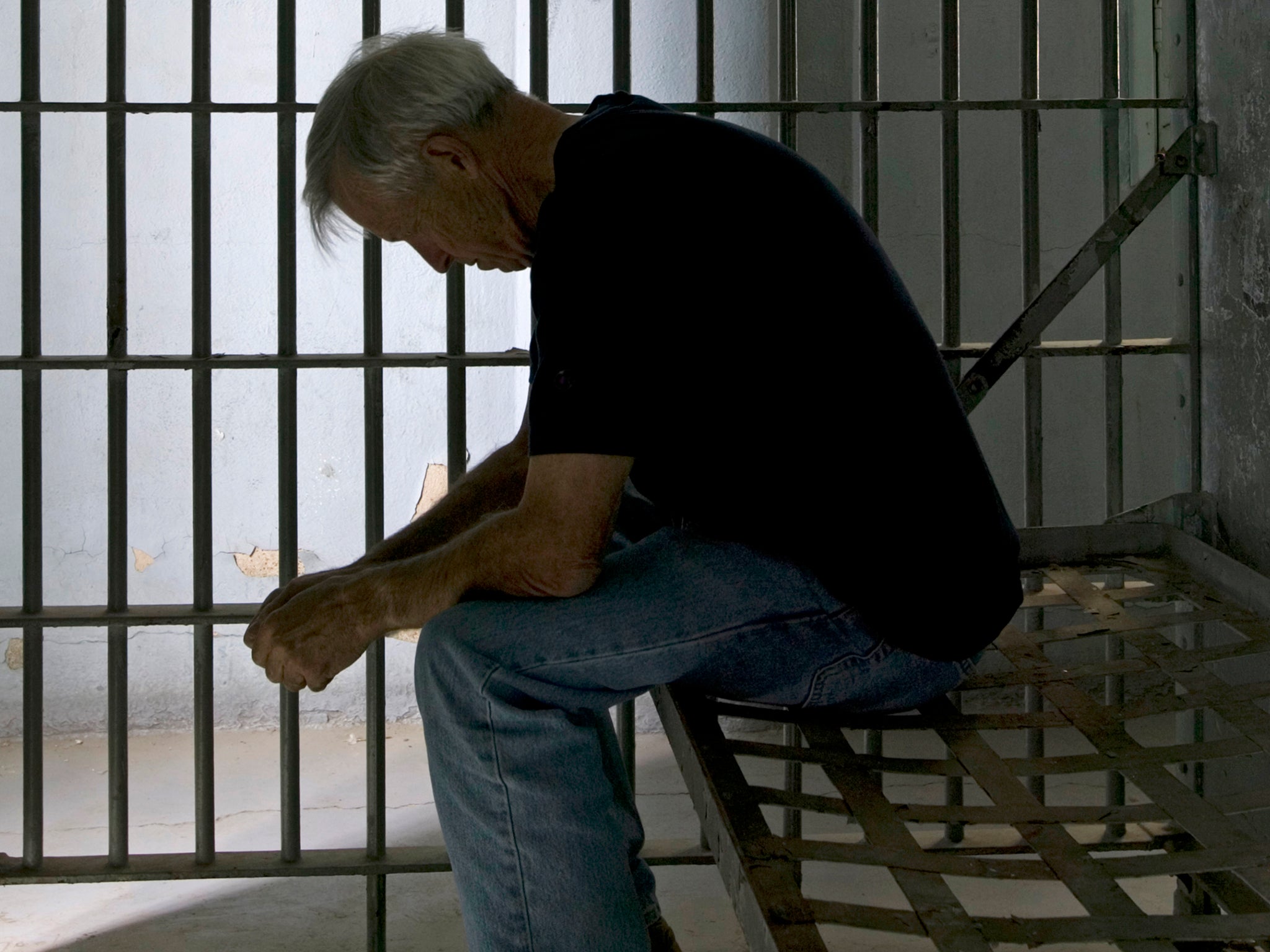Why has the proportion of elderly prisoners risen so drastically?
The percentage of people in prison aged 50 or older has increased by 150 per cent since 2002

Your support helps us to tell the story
From reproductive rights to climate change to Big Tech, The Independent is on the ground when the story is developing. Whether it's investigating the financials of Elon Musk's pro-Trump PAC or producing our latest documentary, 'The A Word', which shines a light on the American women fighting for reproductive rights, we know how important it is to parse out the facts from the messaging.
At such a critical moment in US history, we need reporters on the ground. Your donation allows us to keep sending journalists to speak to both sides of the story.
The Independent is trusted by Americans across the entire political spectrum. And unlike many other quality news outlets, we choose not to lock Americans out of our reporting and analysis with paywalls. We believe quality journalism should be available to everyone, paid for by those who can afford it.
Your support makes all the difference.The proportion of people aged 50 or older who are in prison has rocketed in the last 15 years, making middle-aged and elderly people the fastest-growing demographic group in the prison estate.
A report by Public Health England (PHE) showed that the proportion of people in prison aged 50 or older has increased by 150 per cent since 2002, with 13,376 people over 50 now behind bars – of whom 1,599 are over 70.
The figure, which currently accounts for 16 per cent of all inmates, is expected to increase considerably in both real terms and as a proportion of the whole prison population over the next four years, with an estimated 14,300 over-50s incarcerated by 2021.
The stark figures have raised questions about why the elderly prison population has risen so drastically, and what impact this will have on an already stretched prison estate.
The PHE report states that while the ageing population in England might partly explain the phenomenon, it is more directly a result of other factors, notably historical sentencing practices and the increase in late-in-life prosecutions, often for historic sex offences.
There has also been a sharp rise in the length of prison sentences in the past 10 years. Ministry of Justice figures show that for serious offences, the average prison sentence is now 57 months – 23 and a half months longer than a decade ago.
In June 2017, for example, more than three times as many people were sentenced to 10 or more years, compared to June 2007. This can partly explain the rise in people reaching pensioner age behind bars.
The average sentence for murder has also seen an almost 75 per cent increase in tariff length since 2003, while the sentence lengths for sexual offences increased by about 50 per cent since 2003.
Another reason behind the increase is the fact that more people are being charged for historic offences, due both to improved forensic techniques and efforts by police and other agencies to minimise trauma for victims reporting sex crimes.
Ministry of Justice figures show that of the 234 people over 80 in prison last year, 204 – or 87 per cent – were held for sex offences.
Mark Day, head of policy and communications at the Prison Reform Trust, agreed that the growing number of people serving long or indeterminate sentences is a major factor behind the rapidly ageing prison population, along with a rise in the number of people convicted of historic offences.
”A growth in the number of people convicted of historic offences through improvements in forensic technology and more victims coming forward has also contributed to the increase,” he told The Independent.
Campaigners have urged that the rise in elderly people detained in prison is causing issues for a prison system “totally unsuited” to meeting their basic needs.
“An increasingly elderly and frail prison population creates huge challenges for a prison system already struggling to cope,” Mr Day added.
”A system designed for fit, young men means that many are held in conditions totally unsuited to meeting even their basic needs. For many elderly people, prison is a double punishment.
"People have a right to expect justice to be done, but many are living out their old age in conditions that demean both them and us. A just system tempers retribution with mercy, and we need to ask ourselves if we are getting that balance right.”
A Ministry of Justice spokesperson said: “It is vital that we deal with older prisoners in the most secure and appropriate way. That is why the guidance we have in place for the management of these offenders takes into account the specific challenges they present.
“We are also considering advice from experts on changes that might need to be made to the estate or to individual prison regimes.”
The spokesperson added that the Government will continue to work with NHS England and local authorities to provide the appropriate care and treatment for this group of offenders.
Join our commenting forum
Join thought-provoking conversations, follow other Independent readers and see their replies
Comments